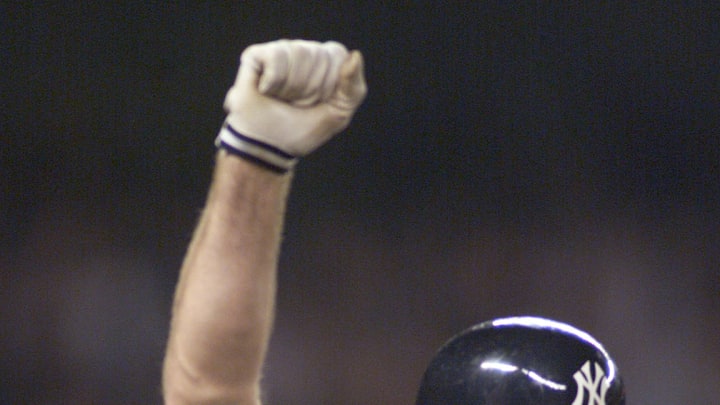t-6. Mel Ott, 1933 New York Giants. From the moment of his arrival as a skinny teen-ager in the 1920s, Mel Ott was a centerpiece of the Giants’ offense. But in Game Five of the 1933 World Series, as the Giants looked to wrap up their first championship since 1922, Ott knew only frustration.
In a 3-3 tie game, Ott had been held hitless in four at bats, striking out twice. That included a first-inning whiff with teammates at first and third. As the game moved in to extra innings, Ott hoped for a fifth chance.
Washington Nationals pitcher Jack Russell started the top of the 10th inning at Griffith Stadium by retiring Hughie Critz and Giants player-manager Bill Terry easily. Ott came up next. With its deep reaches and high fences, Griffith Stadium was known as a homer-averse park, but the future Hall of Famer laid into a Russell pitch and sent it flying over the 419-foot distant barrier in right-center to break the tie.
When Giants starter Dolf Luque struck out Nats first baseman Joe Kuhel moments later, New York had that four-games-to-one World Series victory. Ott Win Probability Added: 40 percent.
t-6. Harry Hooper, 1915 Boston Red Sox. The strength of the 1915 Boston Red Sox was its sensational outfield of Duffy Lewis, Tris Speaker and Harry Hooper. Eventually, Speaker and Hooper would both be inducted in Cooperstown.
Against the National League champion Philadelphia Phillies, the trio combined to bat .364, Lewis and Hooper both topping 1.000 in OPS. Presented with an opportunity to clinch that Series in Game Five, Lewis and Hooper led the way.
The Sox trailed Philadelphia and left-hander Eppa Rixey 4-2 at Philadelphia’s Baker Bowl when Lewis launched a game-tying two-run home run into temporary bleachers in center field. Normally center field in Baker Bowl – 408 feet deep with a 47-foot high wall fronting the clubhouses – was a place where potential home runs went to die. But Phillies management, in search of additional World Series profits, had installed temporary bleachers on the field, shortening the distance considerably.
One inning later, one out into the ninth, those bleachers came into play a second and even more fatal time. Rixey got two strikes on Hooper but left his third pitch out over the plate and the Red Sox right fielder poled it into the temporary seats as outfielder Dode Paskert watched a ball he normally would have caught sail beyond his reach.
When Red Sox pitcher Rube Foster retired the final three Phillies batters without incident, Boston had its World Series win. Hooper Win Probability Added: 40 percent.
